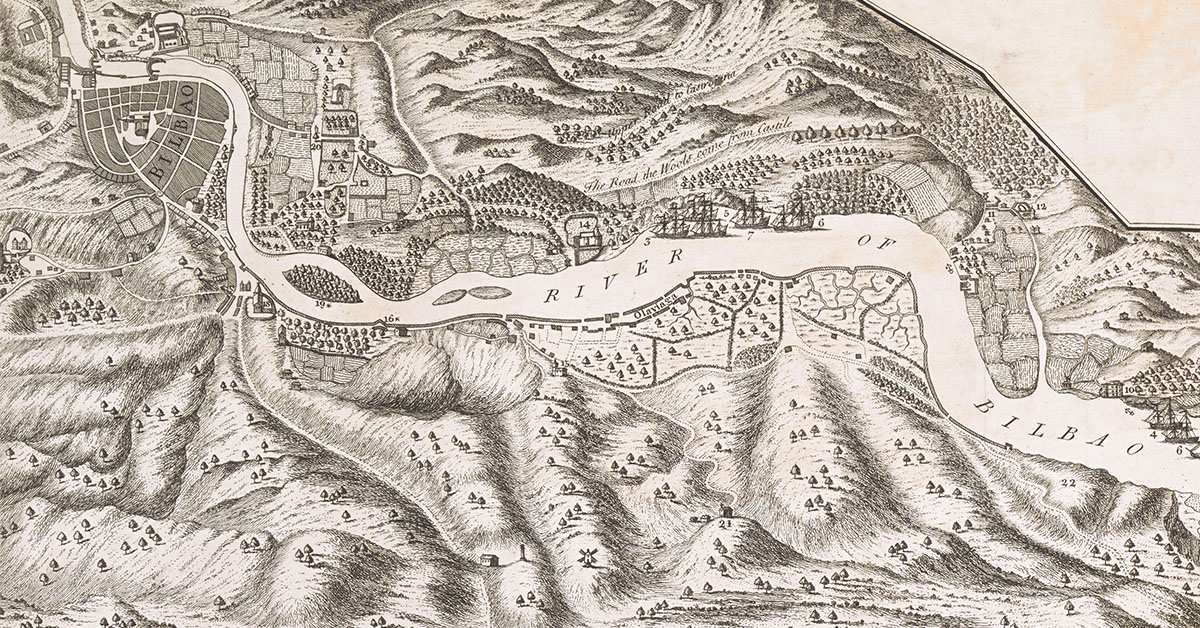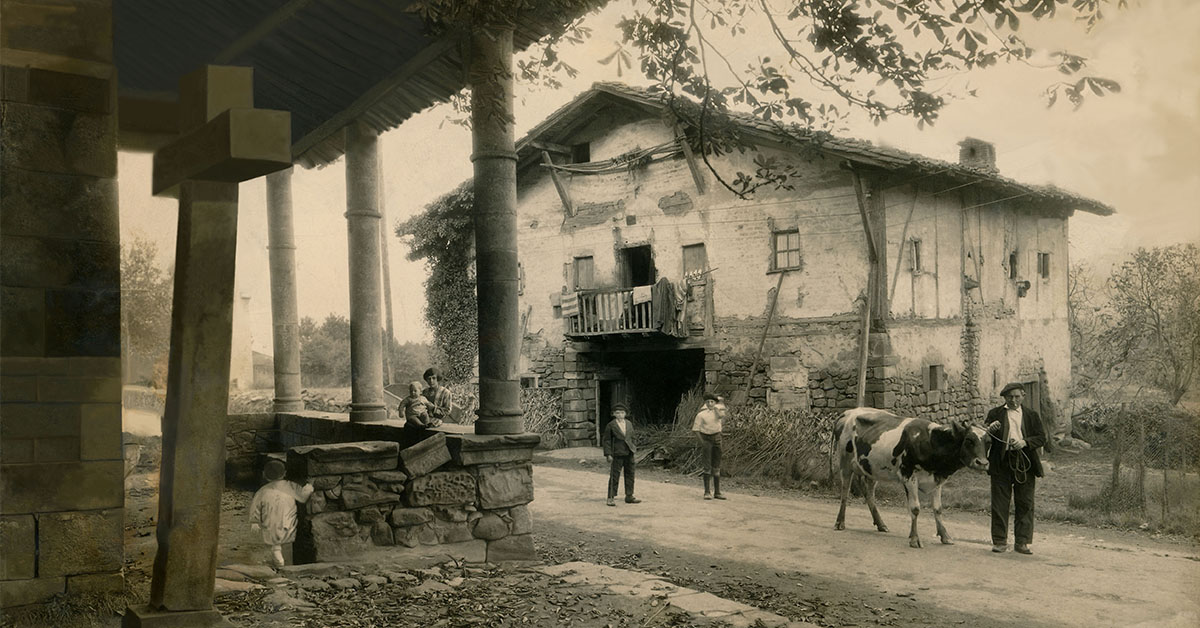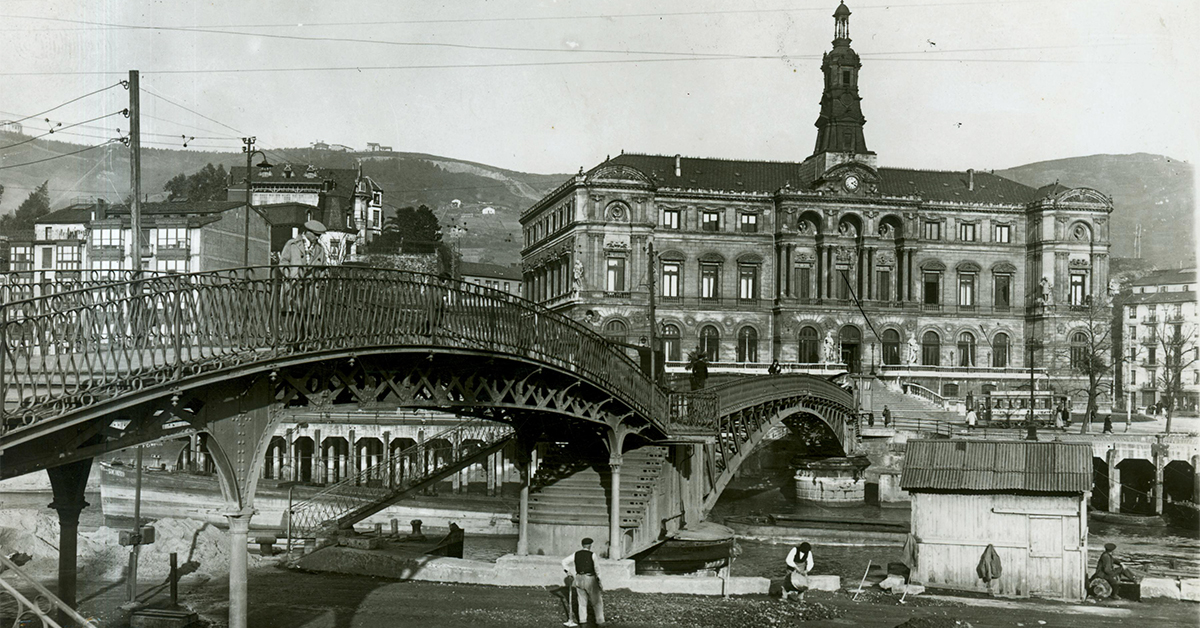Archives
In the first section of the article entitled Euskarakadak we talked about phonetic issues, while in this second, we will focus on the area of syntax.
To get an idea of what we are going to talk about, it would be enough to remember how the character Koldo Zugasti (the actor Karra Elejalde) spoke in the film Ocho apellidos vascos (Eight Basque surnames): «Siempre me acordaba del cumpleaños tuyo; pero tampoco llamarte no iba a hacer, porque lo mismo igual te ponía incómoda o así…» (I always remembered your birthday; but I wasn’t going to call you either, because the same thing made you uncomfortable or like that…).

Detail of the 1739 draught of the Bilbao river estuary, by Gabriel Baudwin (British Library), lent by courtesy of Jabier Aspuru. The Olabeaga area, with 5 sailing ships moored, is in the centre.
World Pizza Day has been marked on 9 February for half a dozen years or so. It seems the day started in the USA and has gradually spread to the other countries, and is even celebrated in Bilbao. But this article is not going to be about the culinary heritage of pizza, but of something rather better known: salt cod or bacalao in Bilbao, which has been part of our culture for nearly 5 centuries, but still does not have a specific day to honour it. Our culinary heritage contains several recipes and much has been written about salt cod; if we resort to a hackneyed phrase, we could claim that salt cod has been here “forever or from time immemorial”, a phrase that is widely used for something that we believe has always been with us. Eels (txitxardinak) are one such example, and the oldest and specific document I have come across referring to their consumption dates back to the early 19th century and not before. When somebody claims that something is from time immemorial, we can only usually find evidence of two or three generations of time, and reliably no more than 100 years. Anybody is free to argue otherwise, but they should provide some documentary proof.
The Basque language or Euskara, at least from what we know, is a small language in terms of the number of speakers and the area of use, but it has had to live alongside great languages throughout its long history. He had Celtic and Iberian as neighbors until Romans brought their imperial language to our surroundings. The Euskara lived for a long time near the strong Latin, and is now bordering on the great French and Spanish languages which are descendants of that Latin. The ancient influence of Latin is evident in current Basque, both in the lexicon and in the morphosyntax. Also that of later Spanish and French. But hasn’t our little Euskara left any trace in the great languages around it?
Toponymy is the study of place names: houses, streets, streams, districts, mountains, sites, etc. They are a testament to our city and our surroundings, and provide a myriad of information on the ethnography, history and geography. And they do not only refer to the surroundings, society and lifestyle, but also to the language.
We therefore need to preserve our place names, just as we do with the other elements of our intangible cultural heritage. That is even more so if we take into account how quickly society is changing, how rapidly we are progressing. In recent decades, the ever-increasingly urbanisation of the territory has led to the loss of many place names and, in turn, the creation of new ones.








